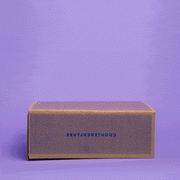-
For many years, we've tasted and purchased a number of excellent coffees from southern Peru, particularly from the Cusco region. Alongside larger volumes of coffee procured for our year-round products, our importing partner, Red Fox Coffee Merchants, helps identify more nuanced and complex lots for this release. Red Fox’s support to the cooperative can’t be overstated, as they have provided crucial services like preharvest financing and connecting the group to dedicated buyers like Counter Culture.
The members of Valle Inca are scattered around the small community of Calca, one of the last stops for travelers journeying into the Sacred Valley of the Incas. Señor Jose Prudencio, a producer, leads this collective by organizing coffee storage and transportation. He also operates a small cupping lab in Calca to assess quality, organizing lots that showcase the farmers’ work. After several years of operating as a loosely organized group, Prudencio formally organized the cooperative in 2020.
These farmers in the Yanatile and Lares river valleys grow mostly Bourbon and Typica varieties, in addition to some Caturra. Illustrating their commitment to crafting exceptional coffee from these varieties, farmers take meticulous care in processing and drying. Many farms have a small de-pulper, and most have ceramic-tile-lined fermentation and washing tanks—key tools for clean and consistent processing. Drying is almost exclusively done on raised beds in small solar dryers, a necessity in an area where sporadic yet intense rainfall can quickly spoil drying efforts.
Although these farmers are relatively isolated from one another, they remain connected by basic infrastructure. While dirt roads are often in disrepair and subject to landslides as they zig-zag along the steep valley walls, most farms are linked by walking paths where roads are not necessary or feasible.
-
Harvest
Process: Washed
Certifications: Kosher
Elevation: 1,600–2,000 meters
Variety: Bourbon, Typica, Caturra
Harvest Time: June 2025–September 2025
Available: Through late March 2026
-
CAC Valle Inca
Length of Partnership
1995 2016 202611 years
Location

-
We believe in paying more.
Since 2009, we have published an annual transparency report to serve as a blueprint for our green coffee purchasing practices and a response to chronically low prices in the coffee industry. We believe paying more for green coffee is an important investment in the long-term viability of our coffee-growing partners’ businesses and our supply.
$0 $6$(Free on Board)/lb - Our price for Valle Inca
$3.96 FOB/lb - Fair Trade Certified Minimum
$3.36 FOB/lb - Average C Market Price
-
![]()
Sustainably-Sourced
-
![]()
Quality-Focused
-
![]()
B Corp Certified
-
![]()
Transparently Traded
![]()
Sustainably-Sourced
![]()
Quality-Focused
![]()
B Corp Certified
![]()
Transparently Traded













